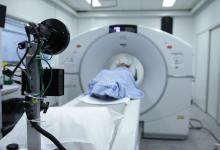Vitamin D Supplements Fail to Prevent Type 2 Diabetes - DUH! Save

A NEJM report shows that the use of vitamin D3 supplementation (4000 IU per day) in those without diabetes or vitamin D deficiency failed to significantly lower risk of type 2 diabetes (compared to placebo).
The rational for this report included observational data showing an association between a low blood 25-hydroxyvitamin D level and the risk of type 2 diabetes.
They included adults who met at least two of three glycemic criteria for prediabetes (fasting plasma glucose level, 100 to 125 mg per deciliter; plasma glucose level 2 hours after a 75-g oral glucose load, 140 to 199 mg per deciliter; and glycated hemoglobin level, 5.7 to 6.4%). The primary outcome was the time to develop new-onset diabetes, with a target number of diabetes events of 508.
A total of 2423 participants were randomized to either vitamin D or placebo. By month 24, the mean serum 25-hydroxyvitamin D level in the vitamin D group was 54.3 ng per milliliter (up from 27.7 ng/ml at baseline), as compared with 28.8 ng per milliliter in the placebo group (baseline = 28.2 ng/ml).
The primary outcome of developing diabetes occurred
- Vitamin D group: 293 events (9.39 per 100 person-years)
- Placeboe group: 323 events (10.66 per 100 person-years)
- Hazard ratio = 0.88 (95% confidence interval, 0.75 to 1.04; P=0.12)
- No differences in the incidence of adverse events
(Editors note: I am continually amazed at the number of associations between vitamin D levels and poor health; yet there are little or not studies showing that Vitamin D Supplementation cures, fixes or prevents anything. Certainly Vitamin D is important for bone health and immune function - but that's about where it ends. I suggest we continue to take vitamin D supplements (since most of are deficient) daily and stop believing that this supplment is the magic bullet for health)










If you are a health practitioner, you may Login/Register to comment.
Due to the nature of these comment forums, only health practitioners are allowed to comment at this time.